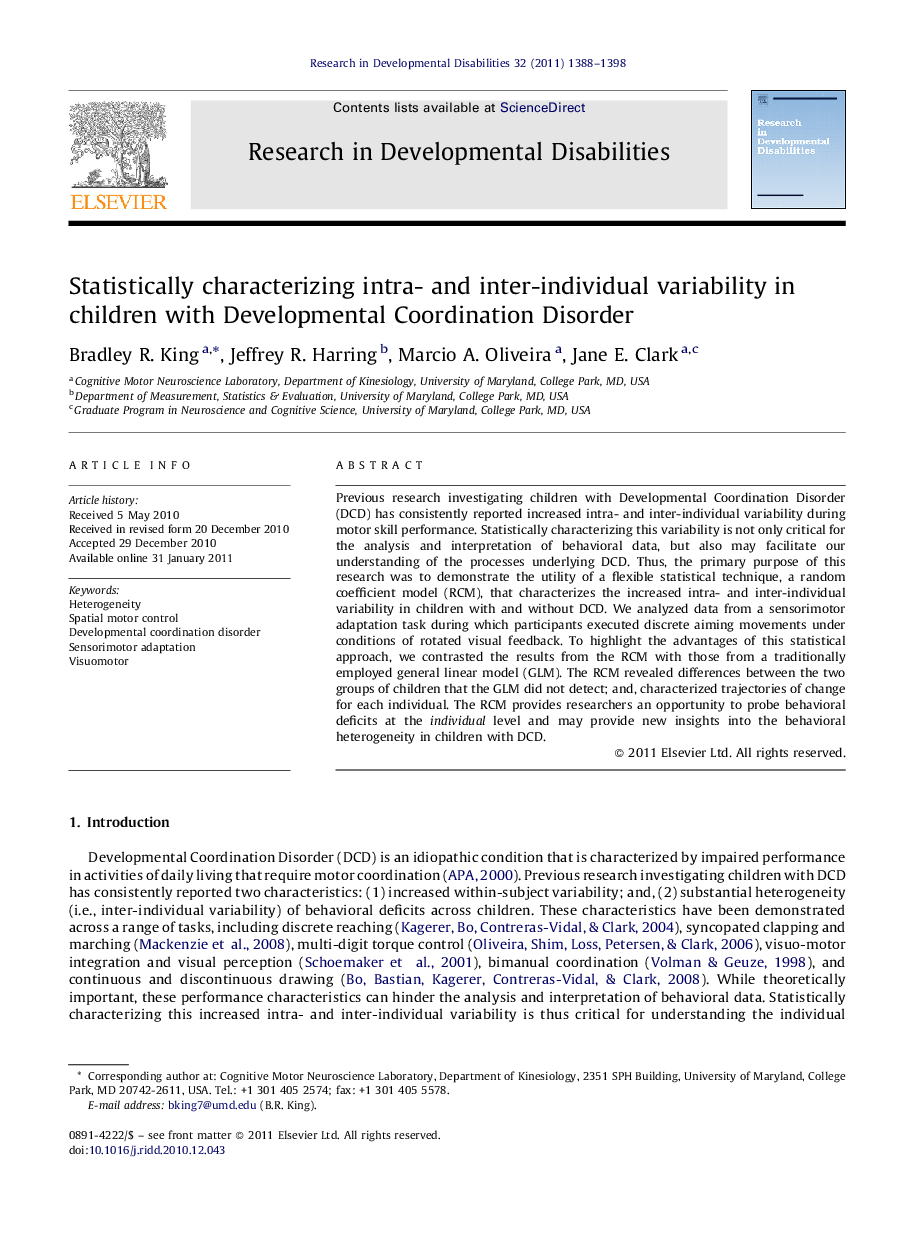| Article ID | Journal | Published Year | Pages | File Type |
|---|---|---|---|---|
| 372101 | Research in Developmental Disabilities | 2011 | 11 Pages |
Previous research investigating children with Developmental Coordination Disorder (DCD) has consistently reported increased intra- and inter-individual variability during motor skill performance. Statistically characterizing this variability is not only critical for the analysis and interpretation of behavioral data, but also may facilitate our understanding of the processes underlying DCD. Thus, the primary purpose of this research was to demonstrate the utility of a flexible statistical technique, a random coefficient model (RCM), that characterizes the increased intra- and inter-individual variability in children with and without DCD. We analyzed data from a sensorimotor adaptation task during which participants executed discrete aiming movements under conditions of rotated visual feedback. To highlight the advantages of this statistical approach, we contrasted the results from the RCM with those from a traditionally employed general linear model (GLM). The RCM revealed differences between the two groups of children that the GLM did not detect; and, characterized trajectories of change for each individual. The RCM provides researchers an opportunity to probe behavioral deficits at the individual level and may provide new insights into the behavioral heterogeneity in children with DCD.
Research highlights► Statistical approach (RCM) characterized behavioral variability in children with DCD. ► Examined performance at population and individual levels of analysis. ► Statistical approach offers advantages not afforded by traditional analytic models. ► Examination of individuals’ behavioral performance offers insights into DCD.
